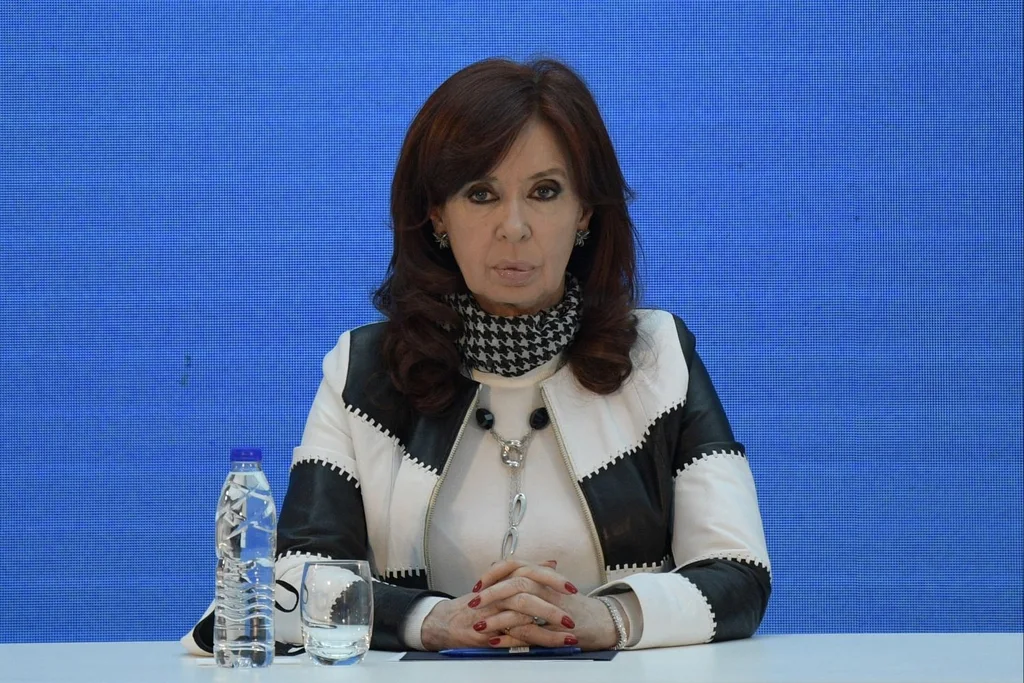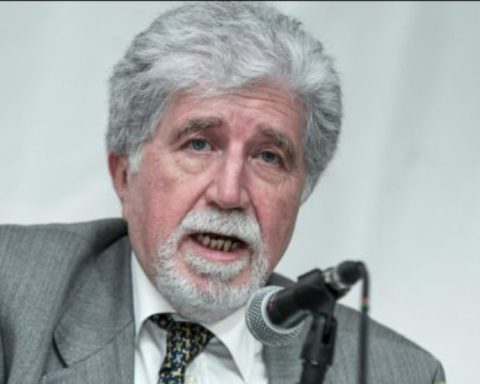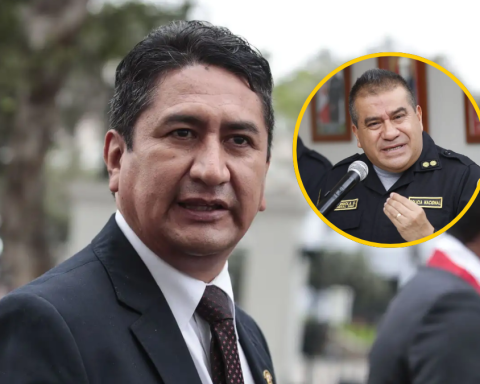The The text of the agreement between Argentina and the International Monetary Fund (IMF) was finally released and, although some details of the “fine print” are missing, the government of Alberto Fernández You can finally achieve your most sought after goal of the last few months: have a bill to send to Congress to avoid an imminent default.
On March 22, a fee for US$ 3.2 billion expires, which in recent days has put a “race against the clock” drama in the negotiations.given that the Central Bank not only does not have foreign currency to pay, but also that its reserves are already in negative territory – that is, it is resorting to unauthorized funds, such as bank reserve requirements.
And, in this emergency framework, the Minister of Economy, Martín Guzmán, showed off having a political mischievousness and a much greater capacity for negotiation than is usually attributed to him. The minister, who before taking office lived for more than a decade in New York, where he worked in the academic field, has been the target of criticism both from the opposition and from Peronism, where he is criticized for his lack of “street ”, his ignorance of the Argentine social reality and, above all, his lack of political waist.
howeveror, Guzmán has managed to send each sector the message they wanted to hear, so as to be able to reach an agreement that seemed to fall off the cliff. Now, despite receiving criticism from the left and right – and even accusations that the commitment to the IMF will be very difficult to fulfill – Everything indicates that he will receive the necessary votes in Congress.
Of course, Nobody in the Argentine political sphere wants to appear responsible for having pushed Argentina, once again, into default. So from hard Kirchnerism, many deputies have already announced that they will vote for the agreement, “even if it is holding their noses.”
Political gestures for Cristina Kirchner
The first person who had to be convinced was Cristina Kirchner herself. The former president reproached Alberto Fernández for the fact that the government had been little aggressive when it came to negotiating. From the point of view of Kirchnerism, Argentina should have gone to the international courts to denounce that the IMF had breached its own internal statute by granting Mauricio Macri a higher quota than the one that corresponded to him and that, in addition, he had given permission for the loan to be used to defend the exchange rate, something expressly prohibited.
But, above all, the Cristina’s fear is that the new agreement imposes economic adjustment conditions, which would lead Peronism to electoral defeat in 2023. In addition, there are aspects in the agreement that the former president cannot digest, both for what it implies from the strategic to its symbolic impact.
The most annoying issue for Cristina is the return of the quarterly missions that, in fact, will audit the Argentine numbers and, according to her opinion, will approve or not the next financial disbursement. Cristina reproached Alberto Fernández that this leaves the government “a shot away from default”, because the IMF can push the country into default against its will.
JUAN MABROMATA / AFP
Guzmán’s management before the IMF seems to convince Kirchenerism.
But Guzmán found the solution. could cconvince the technicians of the Fund that, instead of lending him the money in installments, they would make a first disbursement of US$ 9,800 million. This means that the country will not only be able to pay its imminent maturity, but will also strengthen the reserves of the Central Bank, recovering all the money it had received last year as aid for the “Covid emergency”. AND, For Cristina’s peace of mind, she would have a “cushion” of financial autonomy.
But, in addition to economic security, Cristina needed to preserve her “symbolic capital.” That is to say, that the militant base did not see the “stand by” signed by the macrismo in 2018 and this new agreement as equal situations.
That is why Alberto Fernández, in his speech at the inauguration of the legislative year, overreacted his aggressiveness towards macrismo, and recalled that the State will continue to promote a criminal lawsuit so that the former Ministers of Economy and directors of the Central Bank of macrismo are accused of the crimes of “fraudulent administration” and “embezzlement of funds”.
Coincidentally, just two days later, a federal judge, at the request of the prosecution -which is in the hands of Cristina Kirchner’s former legal secretary- made a request for information from the Central Bank, to determine who were the individuals and companies that had carried out the ” capital flight” produced during the macrista government.
And, to complete the offering to Cristina, Guzmán convinced the Fund’s officials to write a self-criticism in the text of the agreement regarding the 2018 “stand by”, in which they put on record that that loan, the largest in the history of the IMF – US$ 57,000 million approved, of which US$ 44,000 million were actually disbursed in a year and a half – it was a failure.
The introduction of the memorandum of understanding begins by acknowledging that none of the purposes of that agreement were fulfilled: inflation was not lowered, the reserves of the Central Bank were not reinforced, the economy was not reactivated or poverty was reduced.
The deficit and the hot debate on tariffs
All that rhetorical effort and political gestures had one objective: to get Peronism to give its vote for an agreement that will involve goals that are difficult to meet. In particular, the cut in the fiscal deficit to a primary deficit of 2.5% of GDP, and the reduction in assistance from the Central Bank to the Treasury, which will now be limited to 1% of GDP – almost a quarter of the degree of dependence of the “little money machine” that has occurred up to now.
As much as Guzmán posits that the fiscal goal is gradual, at a rate of half a point of GDP per year, economists know that this is not the case. Because last year there was extra aid for tax income that this year will no longer be there, for example the extraordinary tax on large fortunes, which allowed 0.5% of GDP to be collected and which will no longer be present in 2022.
The The most controversial point of all was that of energy and transportation subsidies, which last year represented 3% and which the IMF claimed to decrease by 1 point. It was already a difficult subject before the war in Ukraine changed the whole picture, and now it is considered directly impossible to fulfill.
Guzmán’s political achievement was to use a bill that Macri had vetoed in 2018 to index rates according to salary variation. Of course, at that time, what Argentines paid for electricity and gas was equivalent to 70% of the real cost of producing gas or electricity in the country.
Today, on the other hand, the tariff delay has radically changed the equation: in electricity, only 27% of the cost is paid, while gas is 32%.

JUAN MABROMATA / AFP
Cristina would give the green light to vote on the agreement in Congress.
But, in reality, the difference is even greater, because these calculations are prior to the boom in raw materials caused by the war in Ukraine, which has pushed the cost of oil above US$110, while theGas is close to doubling its previous level of about US$25 per million BTU – a price that, in itself, was already three times that of a year ago.
Even with all these arguments to update the rates, it was difficult to convince Cristina, who is convinced that the “rate” was the real reason why Macri suffered the 2018 electoral defeat and does not want Peronism to repeat that experience.
Therefore, a segmented system was negotiated, where the richest 10% will pay the rate without subsidies, the poorest 20% will only pay 40% of the salary variation and the middle class will pay 80% of the salary increase.
Economists have already given their first skeptical impression: in real terms, with this formula no savings in subsidies will be achieved and, on the contrary, if the international scenario continues to complicate, it is likely that the State will end up spending more money for that item.
The little machine, in sight
The other big problem is money.. The agreement already starts with a goal that no one believes in: an inflation of no more than 48% for this year. Just the day the text of the agreement was announced, the monthly survey among economists was published, in which the forecast was corrected upwards: 55% is expected.
The Guzmán’s challenge is not so much to convince the economists of his inflation target, but to convince the union leaders, who are now starting negotiations on wage adjustments for the year. So far it looks like thisr succeeding in getting large unions -including those of state workers- to abide by a cap of 40%, with a revision clause.
The main reason for distrust of the official inflation target is that no one believes that it is feasible to slow down the operation of the Central Bank’s “little machine” of issuance. having With monetary financing of the deficit prohibited, the government must seek debt on the market.
To the local market, of course, because Argentina does not have international credit. And that implies placing debt -in addition to “rolling” some 5 billion pesos- in a shallow market. Even if it were successful, this would imply that the state sector would absorb almost all of the available credit, leaving little margin for companies, which runs the risk of slowing down economic activity.
Guzmán, happy despite everything
Ultimately, the Agreement with the IMF has not yet been born and Argentine economists already assign it high chances of failure.
HoweverGuzmán shows signs of being happy. He not only continues to maintain that the GDP can grow this year above 4.5%, but he is calm about a key achievement: the dollar.
As always, the The exchange rate continues to be the great thermometer of Argentine social humor and is the indicator that can make the difference between the continuity or the destabilization of a government. And with the news of the agreement, in the parallel market there was a fall in the blue dollar, while economists corrected downwards their expectation of devaluation of the official exchange rate.
















